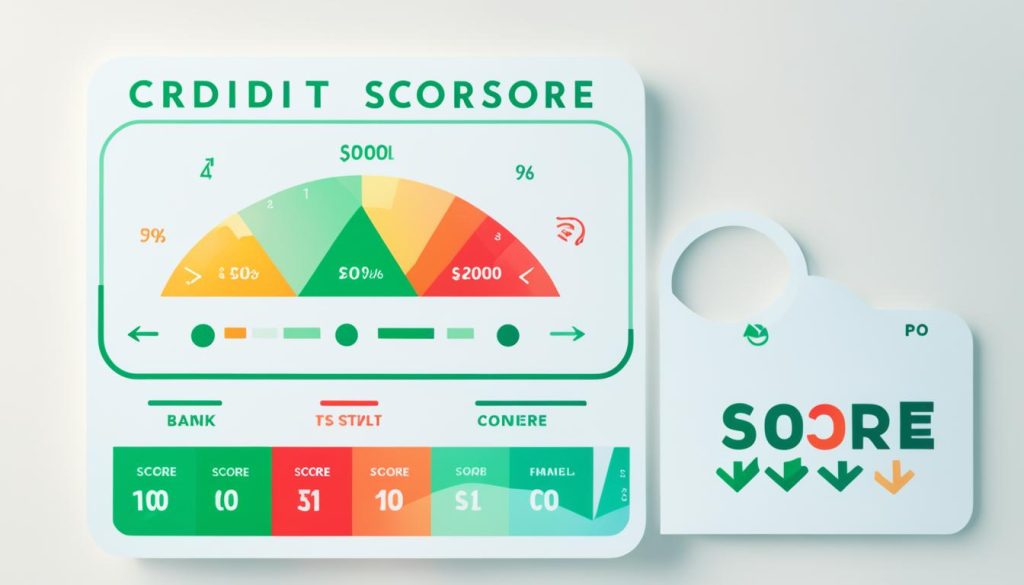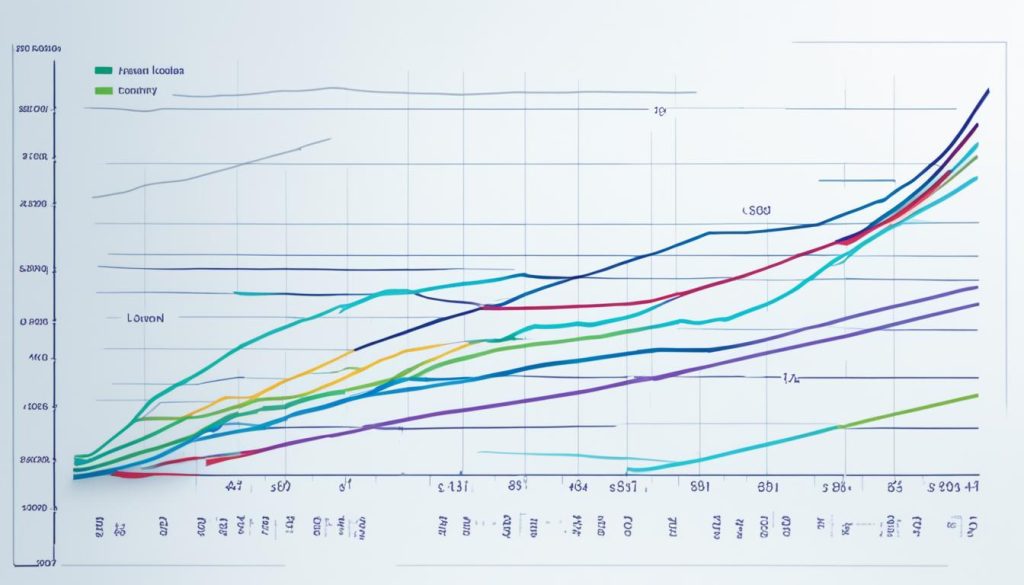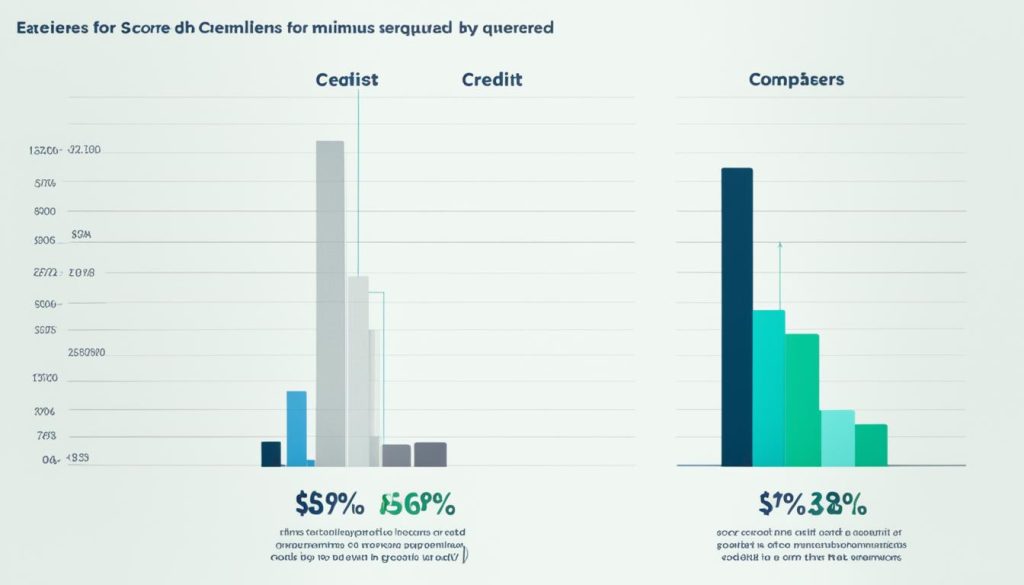Unlocking Opportunities with Understanding Earnest’s Minimum Credit Score Requirements
If you’re considering applying for a loan with Earnest, it’s essential to understand their minimum credit score requirements. While Earnest doesn’t disclose the exact credit score needed, having a good credit score can significantly increase your chances of qualifying for their loans. It is recommended to have a minimum FICO score of 650 to unlock opportunities and enhance your eligibility for Earnest loans.
Meeting Earnest’s minimum credit score requirement is crucial because it demonstrates your creditworthiness to lenders. A higher credit score indicates a lower risk for lenders, making you a more attractive borrower. By understanding the importance of credit score for Earnest loan eligibility, you can take the necessary steps to improve your creditworthiness and increase your chances of approval.
Stay tuned to learn more about the benefits of Earnest loans and the loan options they offer to borrowers.
Key Takeaways:
- Earnest recommends a minimum FICO score of 650 to qualify for their loans.
- A higher credit score improves your chances of loan approval and demonstrates your creditworthiness.
- Understanding Earnest’s minimum credit score requirements can help you take steps to improve your credit and increase your eligibility.
- Stay tuned to learn more about the benefits of Earnest loans and the loan options they offer.
Benefits of Earnest Loans
Earnest loans offer numerous advantages and perks to borrowers who meet their eligibility criteria. These benefits make Earnest a desirable choice for those seeking student loan refinancing or personal loans.
- Quick and Easy Application: Applying for an Earnest loan is a hassle-free and convenient process. With their mobile application, borrowers can easily complete the loan application from the comfort of their own homes.
- Flexible Repayment Options: Earnest provides borrowers with flexible repayment options to suit their individual financial situations. Borrowers can adjust both payment amounts and loan terms according to their needs, allowing for greater control over their loan repayment journey.
- No Late Payment or Origination Fees: Unlike some competitors, Earnest does not charge late payment or origination fees. This saves borrowers from incurring unnecessary charges and encourages timely repayments.
- Payment Skip Option: Earnest offers a unique benefit that allows borrowers to skip a payment once per year without penalties. This flexibility provides borrowers with the breathing room they may need during unforeseen circumstances or financial challenges.
- Extended 9-Month Grace Period: Earnest offers a generous grace period of 9 months before borrowers need to begin making loan payments. This longer grace period surpasses the industry standard of 6 months and provides borrowers with greater financial flexibility as they transition from school to the workforce.
- Savings through Auto Pay: Borrowers can save an additional 0.25% on their interest rate by enrolling in Earnest’s Auto Pay feature. This automatic payment option ensures timely payments and offers potential savings over the life of the loan.
- Cosigner Option: For borrowers who may need assistance in meeting the loan requirements, Earnest allows the option to invite a cosigner. This can improve eligibility and potentially secure more favorable interest rates.
These benefits make Earnest loans a compelling choice for borrowers, offering flexibility, convenience, and potential savings. Earnest’s dedication to improving the borrowing experience sets them apart from other lenders in the market.
Credit score is a key factor when it comes to determining eligibility for an Earnest loan. While the exact credit score threshold is not disclosed by Earnest, they recommend a minimum FICO score of 650 for loan qualification. A higher credit score generally indicates lower risk for lenders and increases the likelihood of loan approval.
Lenders, including Earnest, carefully evaluate credit history and creditworthiness during the loan application process. By maintaining a good credit score, borrowers will meet the minimum requirements and improve their chances of loan approval.
“A higher credit score generally indicates lower risk for lenders and increases the likelihood of loan approval.”
Earnest’s emphasis on credit score underscores the importance of maintaining a healthy credit profile. The credit score eligibility for Earnest loans is a crucial aspect for borrowers to consider when planning their financial goals. A good credit score not only increases the chances of loan approval but also positively impacts the loan terms offered, such as interest rates and repayment options.

The credit score threshold for Earnest loan approval is not explicitly disclosed, and it is recommended to have a minimum FICO score of 650. However, it’s worth noting that credit scores alone may not be the sole factor in the loan application evaluation process. Lenders may also consider other aspects such as employment history, income stability, and savings.
Impact of Credit Score on Earnest Loan Application
A higher credit score not only improves the chances of loan approval but can also have a positive impact on the loan application process. With a strong credit score, borrowers demonstrate a track record of responsible financial management, which lenders value greatly.
Earnest and other lenders use credit scores to assess the creditworthiness and risk associated with lending to a borrower. A higher credit score signifies a lower risk of default and late payments, making borrowers more attractive candidates for loans. It can also lead to more favorable loan terms, lower interest rates, and higher borrowing limits.
By understanding the importance of credit score eligibility for Earnest loans, borrowers can take proactive steps to maintain a good credit score and increase their chances of loan approval.
Earnest Loan Options and Interest Rates
Earnest offers a range of loan options to cater to the diverse needs of borrowers. Whether you’re looking to refinance federal or private student loans, federal PLUS loans, or parent PLUS loans, Earnest has you covered. Their loan amounts start from a minimum of $5,000 and go up to an impressive $500,000, giving borrowers the flexibility to borrow the amount that suits their financial requirements.
When it comes to loan terms, Earnest offers a wide range of options. Borrowers can select a loan term that spans from 5 to 20 years, allowing them to choose a repayment period that aligns with their financial goals and circumstances. This flexibility ensures that borrowers have the freedom to create a repayment plan that works best for them.
Interest rates play a crucial role in determining the affordability of a loan, and Earnest understands this. The interest rates offered by Earnest vary based on the borrower’s creditworthiness and other factors. If you have a good credit score, you have the potential to secure starting interest rates as low as 4.11% for fixed-rate loans and 5.62% for variable-rate loans. This means that by maintaining a healthy credit profile, you can access favorable rates and potentially save money over the life of your loan.

It’s important to note that interest rates may differ from person to person based on individual circumstances. To get an accurate idea of the interest rates you may qualify for, it’s recommended to reach out to Earnest directly and discuss your specific situation with their team.
Prior to making a decision, it’s wise to compare the loan options and interest rates offered by different lenders. By weighing the pros and cons of each option, you can make an informed choice that aligns with your financial needs and goals. Remember, finding the right loan option and interest rate is crucial to ensuring a smooth and affordable repayment journey.
Comparison of Earnest with Other Lenders
When considering student loan refinancing options, it is important to compare Earnest with other lenders in the market. Earnest stands out for its flexible repayment terms, customizable loan options, and competitive interest rates. However, borrowers should also consider other lenders’ eligibility requirements, loan terms, and interest rates to make an informed decision.
Some factors to compare include:
- Loan repayment terms: Compare the length of time borrowers have to repay the loan and choose an option that aligns with their financial goals and capabilities.
- Loan amounts: Evaluate the loan amount options offered by different lenders and determine which lender can provide the necessary funds.
- Availability of cosigner release: Some lenders allow borrowers to release their cosigner from the loan after meeting certain requirements. Consider this option if using a cosigner.
- Options for transferring parent loans to the borrower: If applicable, explore lenders that offer the option to transfer parent loans to the borrower’s name to take advantage of potential refinancing opportunities.
- The loan servicer: Review the reputation and customer service of the loan servicer, as they will be responsible for managing the loan throughout the repayment period.
Comparing Earnest with other lenders based on these factors will help borrowers evaluate the best loan options that align with their financial goals and preferences. By carefully considering and comparing the offerings of different lenders, borrowers can make an informed decision and choose the option that suits them best.

Qualifying for an Earnest Loan Without a Cosigner
While having a cosigner can improve eligibility and potentially secure lower interest rates, it is possible to qualify for an Earnest loan without a cosigner. Earnest takes multiple factors into account when evaluating loan applications, including credit history, employment status, income stability, and savings.
To qualify for an Earnest loan without a cosigner, borrowers should focus on:
- Maintaining a good credit score: A strong credit score is important for demonstrating creditworthiness and reliability. Paying bills on time, using credit responsibly, and monitoring credit reports can help maintain a solid credit history.
- Demonstrating a stable employment history: Lenders see a stable job history as an indicator of financial stability. Having a steady income and employment can increase the chances of loan approval.
- Having a reliable source of income: Lenders want to ensure that borrowers have a consistent source of income to support loan repayment. Providing proof of steady income through pay stubs or tax returns can strengthen the loan application.
- Ensuring enough savings to cover expenses: Having sufficient savings can demonstrate financial responsibility and provide a safety net in case of unexpected expenses. It is essential to have enough savings to cover monthly loan payments and other living expenses.
By meeting these criteria, independent borrowers can increase their likelihood of loan approval from Earnest. Remember, while having a cosigner is not required, it can still be beneficial for borrowers who want to enhance their eligibility and potentially secure more favorable loan terms.

It’s important to note that meeting these criteria does not guarantee loan approval, as each application is evaluated on a case-by-case basis. However, taking steps to improve creditworthiness, maintain stable employment, and demonstrate financial responsibility can significantly increase the chances of qualifying for an Earnest loan without a cosigner.
Federal Student Loan Options Without a Cosigner
Federal student loans provide viable options for borrowers who do not have a cosigner. These loans, such as Direct Subsidized Loans and Direct Unsubsidized Loans, are available to eligible students without considering credit history or the need for a cosigner. To access these federal loan options, borrowers must complete the Free Application for Federal Student Aid (FAFSA) and meet other eligibility criteria, such as enrollment in an accredited educational institution.
Federal student loans offer several benefits for independent borrowers. Firstly, they come with fixed interest rates, ensuring stable monthly payments throughout the repayment period. This provides borrowers with the peace of mind of knowing exactly how much they need to pay each month.
Additionally, federal student loans offer various loan forgiveness options. For example, borrowers working in public service or certain eligible professions may qualify for loan forgiveness after a specified period of time and after making a certain number of qualifying payments.
Income-driven repayment plans are also available for federal student loans, allowing borrowers to adjust their monthly payments based on their income and family size. This feature provides flexibility and ensures that loan payments remain affordable, especially during periods of financial hardship.
Furthermore, federal student loans do not require a credit check or a cosigner, making them accessible to a wider range of borrowers.
Direct Subsidized Loans
Direct Subsidized Loans are available to undergraduate students with financial need. The U.S. Department of Education pays the interest on these loans while the borrower is in school, during the grace period, and during deferment periods.
Direct Unsubsidized Loans
Direct Unsubsidized Loans are available to both undergraduate and graduate students. Unlike Direct Subsidized Loans, the borrower is responsible for paying the interest on the loan at all times, even while enrolled in school.
Overall, federal student loans without cosigners provide a valuable option for independent borrowers who may not have access to creditworthy cosigners. These loans offer stability, flexibility, and a range of repayment options tailored to individual financial circumstances.

Conclusion
In conclusion, understanding Earnest’s minimum credit score requirements is crucial for borrowers looking to unlock opportunities and secure loans. While a credit score of at least 650 is recommended, it’s beneficial for borrowers to aim for a higher score to increase their chances of loan approval and access better interest rates. By meeting these requirements, borrowers can confidently pursue their financial goals with Earnest.
It’s important for borrowers to explore other loan options and compare lenders to ensure they find the best fit for their needs. Additionally, for those who do not have a cosigner, considering federal student loan options can be a viable alternative. These loans provide various benefits and don’t typically require a cosigner, making them attractive options for independent borrowers.
To make informed decisions, borrowers should take the time to understand not only the requirements but also the benefits of Earnest loans. By doing so, they can confidently navigate the loan application process and choose the option that is most suitable for their financial situation.
